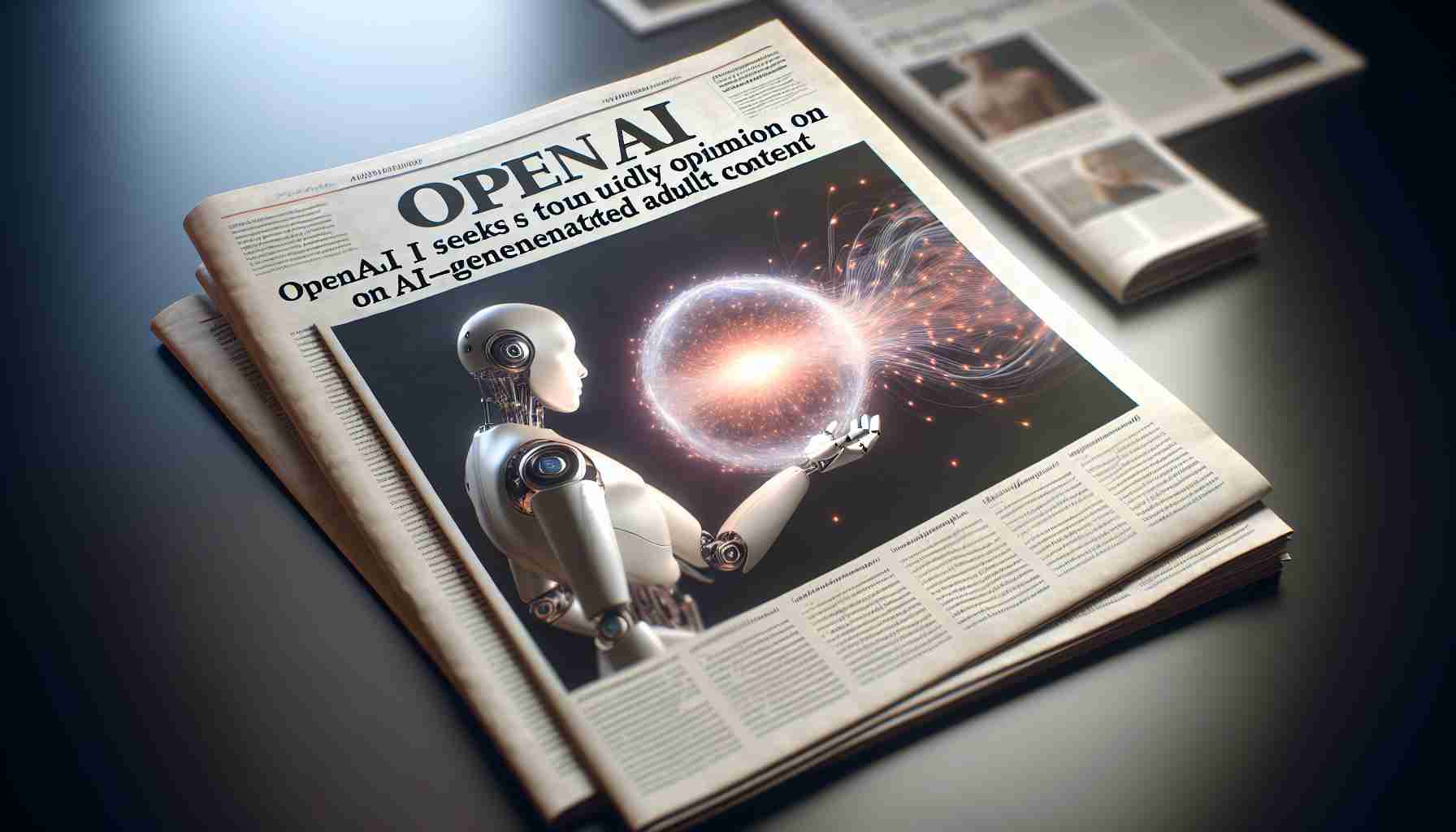Global AI leader OpenAI has initiated a conversation about the potential creation of adult content using its AI technology, which is known for its advanced language models like ChatGPT, DALL-E image generator, and the more exclusive Sora video generator. These platforms have typically restricted user generation of content deemed not safe for work (NSFW), which includes the realms of erotica and pornographic material.
The organization has released a document soliciting feedback on their AI’s safety policies, indicating that they are considering the responsible generation of NSFW content. This term typically covers materials that are inappropriate for a workplace setting, encompassing erotic, violent, or explicit content.
In an engagement with NPR, OpenAI’s product leader Joanne Jang conveyed the company’s intention to spark dialogue over the necessity of maintaining a ban on erotic texts and images containing nudity. OpenAI suggests there might be valid cases where such content could be important to users.
OpenAI commits to considering users’ ages in their review and firmly excludes the possibility of authorizing deepfakes that exploit real individuals’ likenesses. In recent years, this type of technology has led to misuse, including the production of pornographic content featuring celebrities and could easily be weaponized for bullying or harassment in other contexts.
Furthermore, Jang emphasizes that exploring this issue doesn’t mean that OpenAI is venturing into creating AI-generated pornography. The outcome of this exploration will likely depend significantly on the feedback OpenAI receives on the published document and whether they can establish guidelines that prevent misuse and ensure accountability.
Important questions, challenges, and controversies:
– How will OpenAI ensure that any AI-generated NSFW content is ethical and consensual? The primary challenge is establishing clear guidelines that define ethical boundaries and consent. This is relevant because current AI models do not have the ability to discern consent and can potentially create images or write text based on public figures or individuals who have not granted their permission.
– What mechanisms will OpenAI put in place to prevent the AI from creating illegal or harmful content? OpenAI must implement robust content moderation strategies and technologies to prevent the dissemination of illegal material such as child pornography, non-consensual imagery, or content that promotes violence.
– How can potential biases in AI-generated adult content be addressed? AI systems can perpetuate societal biases present in their training data. There is a risk that AI-generated adult content could reinforce negative stereotypes or unfair depictions of gender, race, and sexuality.
– Can AI-generated adult content contribute to societal problems such as the objectification of individuals? There’s an ongoing debate about the societal impact of adult content, and the role that AI might play in its amplification is controversial.
Advantages:
– AI-generated content can potentially offer a safer alternative to human-performed pornography by reducing the exploitation associated with the adult entertainment industry.
– For consenting adults, it could cater to various fantasies in a way that does not involve real individuals, thereby potentially increasing privacy and consent in adult content consumption.
Disadvantages:
– There’s a possibility that AI-generated content could blur the lines of consent and lead to the availability of highly personalized non-consensual content.
– The use of AI in this aspect could also potentially normalize extreme or unrealistic sexual behavior, leading to warped perceptions of intimacy and consent in real-world relationships.
Suggested related links:
To explore more about OpenAI’s initiatives and projects, you can visit the OpenAI main page at OpenAI Homepage. Please remember that this link does not necessarily contain specific information about the topic discussed but provides an understanding of the broader work and ethics of the company.

